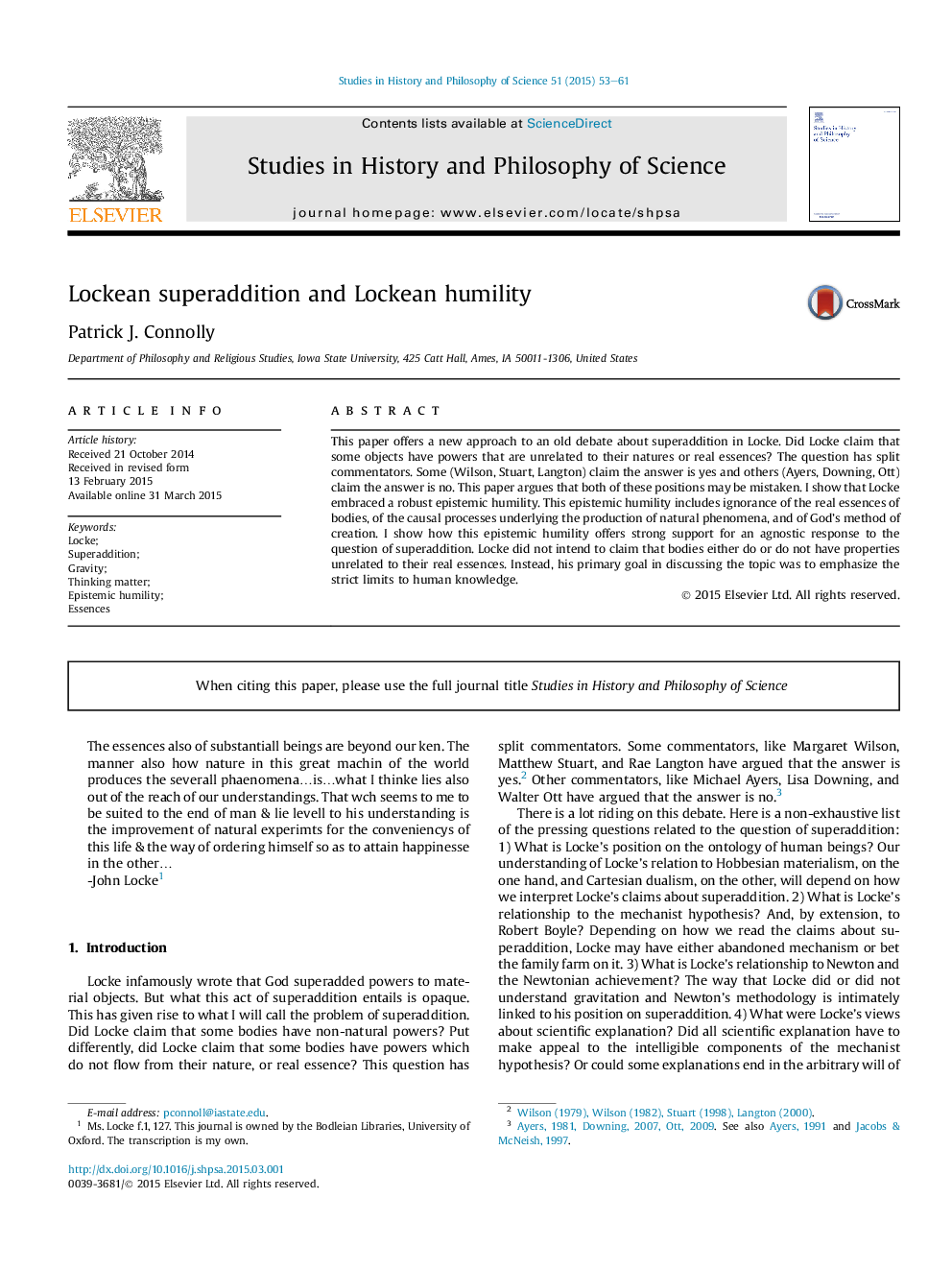| Article ID | Journal | Published Year | Pages | File Type |
|---|---|---|---|---|
| 1160482 | Studies in History and Philosophy of Science Part A | 2015 | 9 Pages |
Abstract
This paper offers a new approach to an old debate about superaddition in Locke. Did Locke claim that some objects have powers that are unrelated to their natures or real essences? The question has split commentators. Some (Wilson, Stuart, Langton) claim the answer is yes and others (Ayers, Downing, Ott) claim the answer is no. This paper argues that both of these positions may be mistaken. I show that Locke embraced a robust epistemic humility. This epistemic humility includes ignorance of the real essences of bodies, of the causal processes underlying the production of natural phenomena, and of God's method of creation. I show how this epistemic humility offers strong support for an agnostic response to the question of superaddition. Locke did not intend to claim that bodies either do or do not have properties unrelated to their real essences. Instead, his primary goal in discussing the topic was to emphasize the strict limits to human knowledge.
Related Topics
Social Sciences and Humanities
Arts and Humanities
History
Authors
Patrick J. Connolly,
